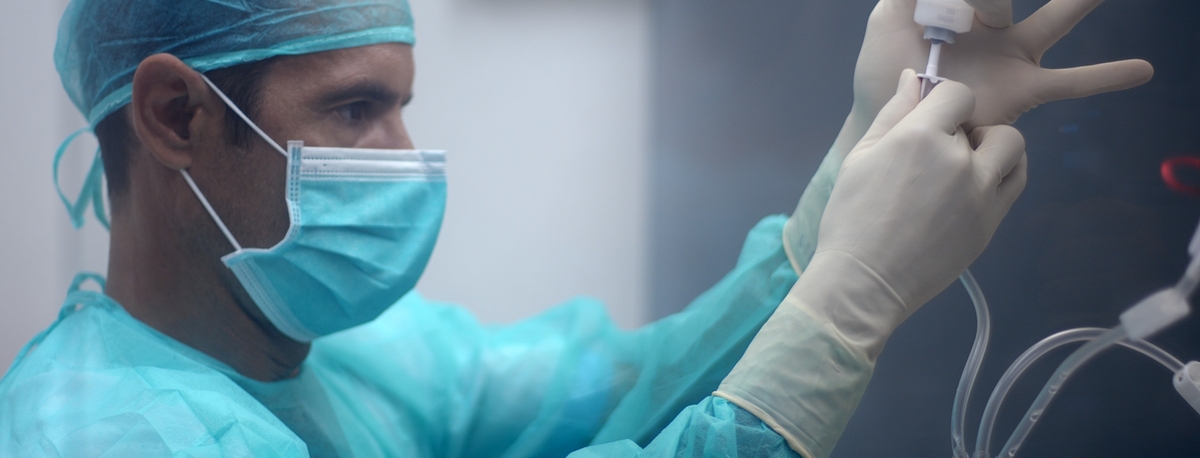
Cancer
- Breast cancer
It is estimated that 1 in 8 women will develop breast cancer during their lifetime, with around 26,000 new cases diagnosed in Spain each year. Despite the increase in its incidence, mortality from this type of tumour is decreasing annually thanks to early diagnosis programmes and advances in its treatment.
The Cancer Unit at Centro Médico Teknon offers comprehensive, personalised care and boasts renowned specialists and state-of-the-art technology.
- Breast cancer treatment
The treatment of breast cancer depends, among other variables, on the size and location of the tumour, and the extent or stage of the disease at the time of diagnosis. In most cases, the so-called trimodal therapy is usually performed: surgery, chemotherapy or hormone therapy, and radiotherapy. The usual sequence is to perform surgery first, followed by chemotherapy, should it become necessary, and radiotherapy. In some cases chemotherapy is given prior to surgery as an approach to large tumours to facilitate subsequent conservative surgery, or in cases with initial axillary lymph node involvement.
Once the tumour has been removed, its pathological analysis (size, cell subtype, etc.) and biological characteristics (degree of malignancy, sensitivity or insensitivity to hormonal stimuli, etc.) determine the risk of local and/or distant recurrence and the need for post-surgical treatment to minimise this risk. The development of various genomic platforms over recent years has enabled the selection of patients for whom chemotherapy is essential, thereby avoiding its administration to patients for whom it is not necessary.
- Genitourinary Tumours Unit
-
Prostate cancer is one of the main health problems facing men. It is estimated that 3 out of 10 men over the age of 50 will develop prostate cancer during their lifetime. The most effective weapons to combat it are early detection through specific tests and multidisciplinary treatment at a centre of recognised excellence.
Centro Médico Teknon has internationally renowned specialists who will help you prevent, diagnose and choose the most appropriate treatment in each case. These professionals will advise you and place special emphasis on resolving the major concerns arising from the disease:
- Removing the tumour and cancer cells
- Preserving maximum sexual potency
- Maintaining urinary continence
Everything is done using the least invasive treatments that are offering the best results, as confirmed by medical studies:
- Laparoscopic surgery
- Da Vinci robot-assisted laparoscopic surgery
- Next-generation radiotherapy: True-Beam STX with the Calypso system
- Comprehensive solutions
In the event of a positive diagnosis, you can rest assured that at Centro Médico Teknon you will receive the most appropriate treatment for your case.
- Radical prostatectomy with laparoscopy. The prostate gland and seminal vesicles are removed through small incisions using a minimally invasive technique, which minimises scarring, post-operative pain and hospital stay, and promotes faster recovery than traditional open surgery. This technique requires a high level of experience and expertise on the part of the specialist urologist performing it in order to achieve optimal results.
- Da Vinci robot-assisted radical prostatectomy. With its superior manoeuvrability, enhanced visual field and tremor-filtration, the Da Vinci robot ensures maximal precision in surgery, delivering all the advantages of minimally invasive surgery without the difficulties of conventional laparoscopic surgery. Research indicates that patients undergoing prostatectomy via the Da Vinci system experience faster restoration of urinary continence and sexual function, exhibit fewer positive margins, and face reduced risks compared to those having traditional open surgery or laparoscopy.
-
- Haematology
The Haematology Oncology Unit at Centro Médico Teknon offers a comprehensive, personalised diagnosis for patients with lymphoproliferative diseases (lymphomas, leukaemias), as well as the most advanced and appropriate treatments for each case.
The Haematology Oncology Unit works closely with Teknon's Pathology Department and is supported by pathologists specialising in the diagnosis of lymphoproliferative diseases.
Thus, our Clinical Analysis Laboratory provides the Unit with the support required for blood diseases from a diagnostic point of view (cytology, flow cytometry, cytogenetics, and molecular biology).
- Bladder Cancer
- What is the incidence of bladder cancer?
El cáncer de vejiga es el segundo tumor más frecuente del sistema genitourinario después del cáncer de próstata. Su incidencia máxima se produce alrededor de la séptima década de vida.
- What types of tumours exist and how are they treated?
Most bladder tumours (75%) are superficial tumours. These tumours are mainly treated by transurethral resection (through the urethra using a cystoscope). Depending on the depth and grade, treatment with local chemotherapy or immunotherapy should be carried out.
The other 25% are invasive tumours. These tumours require more aggressive treatment consisting of a cystectomy (removal of the bladder). In certain circumstances, they will require treatment with intravenous chemotherapy and/or radiotherapy.
- Kidney cancer
The oncology department is a pioneer in antiangiogenic therapies and immunotherapy for metastatic kidney cancer. As in the case of prostate cancer, a multidisciplinary approach involving urologists, radiation oncologists, radiologists and pathologists is standard practice at our centre.
In the last two years, immunotherapy has been incorporated as an effective treatment for renal carcinoma, replacing antiangiogenic drugs in some situations.
- Colon cancer
Colorectal cancer is the second most common cancer in both sexes. In Spain, 9,000 new cases of colorectal cancer are diagnosed each year, and of these, around 2,200 are diagnosed in Catalonia. Most colon cancers, 65-85%, are sporadic, 10-30% are family aggregates (cancers that accumulate in a family for various reasons, such as sharing the same lifestyle, environmental exposures, etc.), and 5-10% are hereditary predispositions.
The risk factors for developing colon cancer are:
- Age: most colon cancers are diagnosed after the age of 50.
- Diet and exercise: diets high in fat and low levels of exercise promote the development of colorectal cancers.
- Personal history: a personal history of polyps increases the risk of colon cancer.
- Family history or genetic factors: People with relatives diagnosed with colorectal cancer or relatives diagnosed with Familial Adenomatous Polyposis (FAP) or hereditary non-polyposis colorectal cancer (HNPCC) have an elevated risk of developing cancer.


































